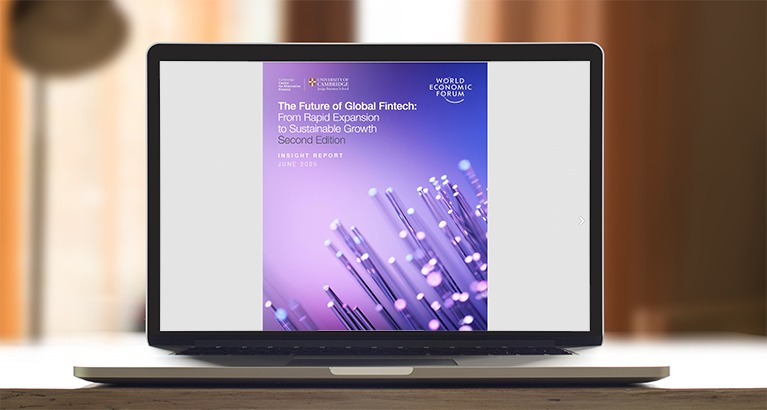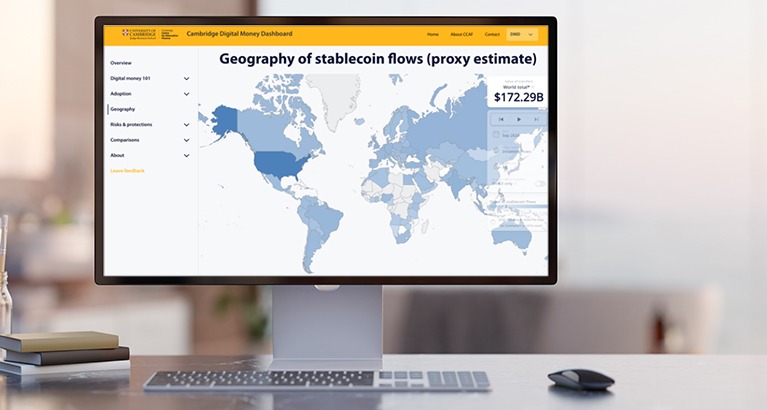AI and technology
Innovation to impact: technology, governance and regulation
As governments worldwide grapple with the accelerating pace of technological change, the central challenge is no longer technical but institutional: how to translate digital innovation into citizen-first outcomes at scale. The obstacles lie in execution – requiring effective governance, adaptive regulation, and institutional transformation. In this piece, Carlos Montes (Lead – Cambridge Innovation Hub for Prosperity, Montek Singh Ahluwalia (citizen-first public servant and economic reformer), and Pavle Avramovic (Head of Market and Infrastructure Observatory at the CCAF), examine how public institutions can move from policy ambition to real-world impact by building innovation-ready systems that prioritise citizens over processes
Research centre news
Open banking and finance accelerate across APAC region
Open banking and open finance have gained significant momentum across the Asia-Pacific (APAC) region, with 16 jurisdictions adopting frameworks to varying extents, a new report by the Cambridge Centre for Alternative Finance (CCAF) reveals.
Research centre news
Survey: fintech industry embraces inclusive growth
Co-published by the Cambridge Centre for Alternative Finance (CCAF) and the World Economic Forum, a new edition of the Future of Global Fintech report draws on a survey of nearly 250 fintech firms, providing relevant data from 6 regions that can be used to guide approaches and policies that support fintech growth. Explore the key takeaways from the report, as discussed at the Annual Meeting of the New Champions 2025 in June.
AI and technology
From innovation delta to regulatory singularity: how innovative regulatory systems can help regulation keep pace with financial innovation
The global financial system is undergoing a profound transformation driven by digital innovation. Yet, the pace of regulatory innovation and the scale of digital transformation within public authorities remain uneven and comparatively insufficient. This article, by Bryan Zhang, Co-Founder and Executive Director of the Cambridge Centre for Alternative Finance, examines the widening innovation gap between innovators and regulators, and outlines potential strategies to foster and accelerate system-level innovation within central banks and financial regulators across both developed and developing economies.
Finance and accounting
Transition finance: bridging the climate investment gap
Philippa Martinelli, Head of Climate & Transition Finance at the Cambridge Centre for Alternative Finance, explores the vital role of finance in tackling climate change. The article highlights the scale of the challenge, the urgency of transition finance, and the investment shifts needed to build a low-carbon, resilient global economy.
Finance and accounting
Data sharing as the way forward
In this article, Bryan Zheng Zhang (Executive Director and Co-founder of the Cambridge Centre for Alternative Finance) and Pavle Avramovic (Head of Market & Infrastructure Observator at the Centre), highlight how open banking and open finance are reshaping global financial services through secure data sharing. With over 95 countries adopting frameworks, the shift is delivering benefits for consumers and SMEs, while becoming a key layer of digital financial infrastructure – despite ongoing challenges around privacy, regulation and implementation.
Finance and accounting
From automation to autonomy: the agentic ai era of financial services
In this article by Bryan Zhang (Executive Director, CCAF) and Kieran Garvey (AI Research Lead, CCAF), they explore how agentic AI – capable of autonomous decision-making – could transform financial services by automating workflows, personalising advice, and reshaping roles, while also raising critical challenges around governance, fairness, and risk in an increasingly AI-driven economy.
Research centre news
Cambridge study: sustainable energy rising in Bitcoin mining
The use of sustainable energy sources for Bitcoin mining has grown to 52.4%, while natural gas has replaced coal as the single largest energy source, finds a new study by the Cambridge Centre for Alternative Finance (CCAF) at Cambridge Judge Business School.
Research centre news
New study: industry associations boost fintech ecosystems
Industry associations are valuable contributors to the fintech ecosystem in many jurisdictions globally. They play an important and prominent role in a number of the fintech ecosystems enablers. For example, through representing the voice of the fintech industry, they engage with financial authorities to provide input and feedback on the regulatory environment.
Research centre news
New report: digital finance linked to MSME growth
Digital finance providers enhance access to credit for businesses, particularly for MSMEs operating in EMDE countries, resulting in improved business performance, a new report by the Cambridge Centre for Alternative Finance (CCAF) reveals.
Research centre news
Report: exploring wholesale central bank digital currencies
Report by the Cambridge Centre for Alternative Finance based on interviews with central banks and market participants examines how wholesale central bank digital currency initiatives are evolving in pilots and other developments around the world.
Research centre news
Digital tool sheds light on stablecoin flows and regulation
The Cambridge Centre for Alternative Finance (CCAF) at Cambridge Judge Business School launches an update to the Cambridge Digital Money Dashboard (CDMD), offering new insights into the geographical flows of stablecoins, as well as regulatory overviews for a wider set of jurisdictions.













